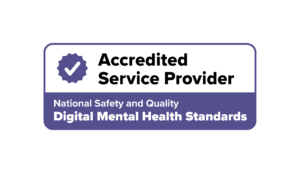How is ADHD diagnosed?
ADHD is diagnosed via an in-depth series of assessments, including a clinical interview and medical assessments.
If you are a patient wanting to book an appointment with Call to Mind, click here. If you are a GP wanting to learn about our clinical pathway for people with ADHD, click here.
Some people take free tests for ADHD, usually based on self-report scales. Some of them are designed to be used for “ADHD screening” and some of them claim to diagnose ADHD. One test that is commonly searched for is the “ADHD Spectrum Test.” These kinds of tests can prompt someone to visit their doctor for advice, but they are not enough for a diagnosis. Getting a positive result or a high score on these tests does not necessarily mean that someone has ADHD.
Similarly, even if you find it very useful to use supports and tools designed for people with ADHD (such as ADHD planners, “ADHD music,” “brown noise,” “white noise,” ADHD apps, fidget spinners, and so on), this information – on its own – is not enough to make a diagnosis of ADHD.
Before someone can be diagnosed with ADHD, they need to be assessed by a registered clinical professional who is trained in diagnostic assessment using one of the main diagnostic systems. The two main diagnostic systems are (a) the Diagnostic and Statistical Manual of Mental Disorders, currently in its fifth Edition, known as DSM-5, and (b) the International Classification of Diseases, now in its 11th Edition, known as ICD-11.
There are many different conditions that can cause problems with attention and productivity, including both physical and mental health problems. If you are struggling with symptoms of what you believe to be ADHD, it will be important to find the correct cause(s) of the symptoms because that is the only way to determine the best treatment options.
The clinical interview is just one step in receiving a diagnosis. Before someone can be diagnosed with ADHD, their doctor needs to first conduct medical tests to check for other explanations for their symptoms (other than ADHD). It’s important to exclude physical and mental health conditions, and a baseline health assessment is also required before you can start certain medications.
In addition to the steps above, the diagnostic process also involves gathering information from the person and from some of the key people in their life. This may include finding reports from the person’s school experiences as a child and/or sending questionnaires to the person’s family. This is all done after a discussion with the person about the process and about the people being contacted.
Once these various pieces of information have been evaluated by a registered clinical professional, they can then advise the person whether they are likely to have ADHD, as well as whether there are additional health conditions that could be contributing to their symptoms.


